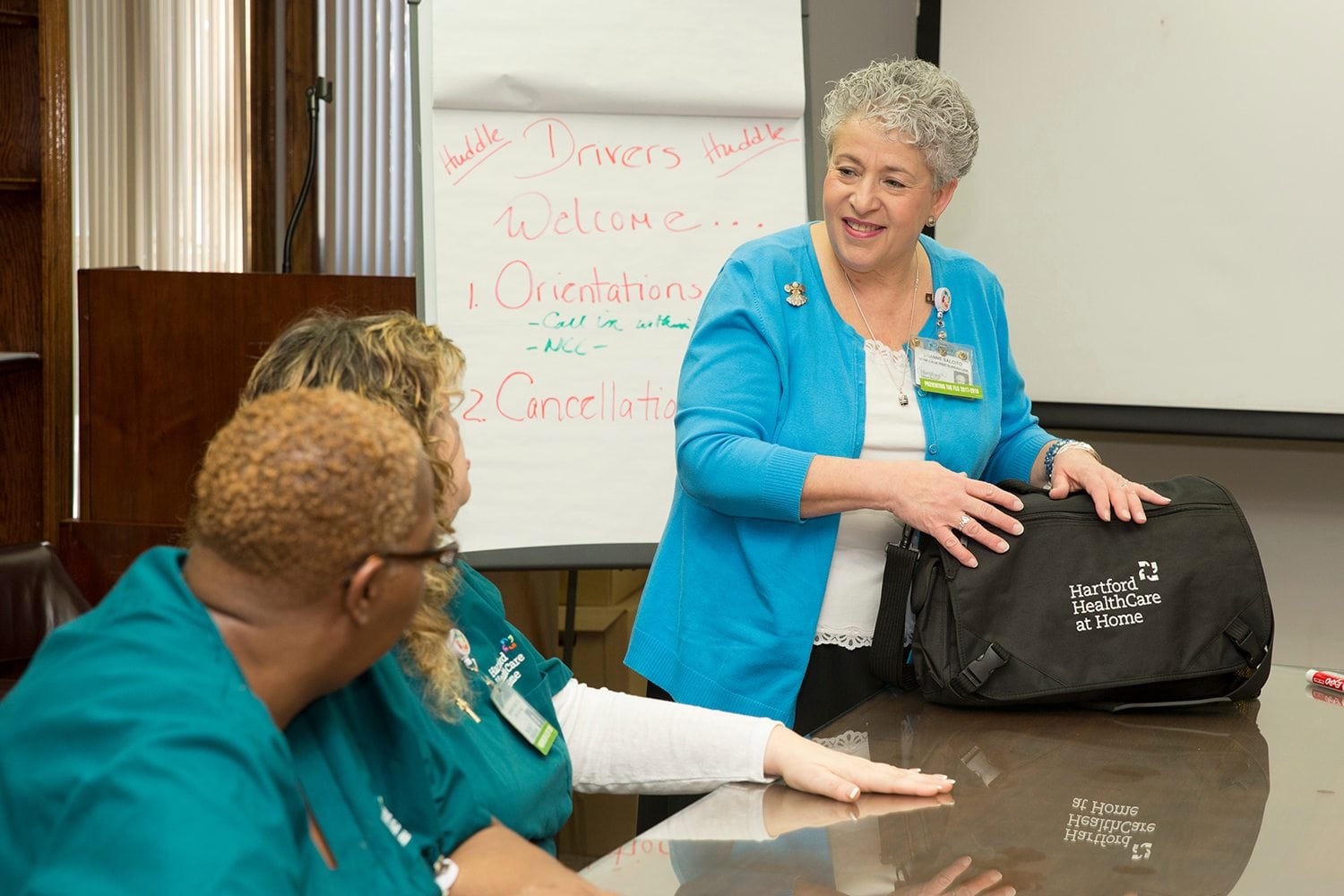When people think of health care, they think of doctors’ offices, clinics, and hospitals. But what about the hundreds of patients that receive care in their own homes? That’s where Luanne Salcito steps in. With her team of 49 aides, plus nurses and other care workers, Luanne coordinates home visits for both patients needing short-term care until they improve and patients receiving hospice care. She is the Home Care Aide Supervisor. It’s a big job. One for a big personality—something Luanne has in spades.
“My job is to make sure I’m advocating for the aides and for the patients. I’m the liaison between the nursing staff and patients. I get to talk to everyone on the case.”
Patients often feel more comfortable in their homes, and Luanne helps to ensure they get the very best care.
“You have family support and comfortable surroundings,” Luanne said. “You function better where you feel comfortable. The greatest gift is for many people to be able to stay home as long as possible. And we have hospice so they can pass away at home, if that’s their wish.”
Aides go into a patient’s home anywhere from twice to five times a week for an hour to ninety minutes at a time. While nurses take vital signs and administer the medical end, Luanne says it is the aides who often end up building relationships with patients. The nitty-gritty of their day-to-day job makes it nearly inevitable.
“The patients feel comfortable with the aides; the aides don’t have the power to put them in the hospital, so they will say more,” Luanne said. “The aides can joke a little more, and there is just a beautiful relationship with many of our patients and their families.”
A Waterbury native, Luanne started at Hartford Healthcare back when her division was called The Visiting Nurses Association, in 1980. She’s been in her current position for 12 years. She supports the system by supporting the workers within it.
So, how does the home care program work?
When patients first enter the system, a nurse makes an assessment based on what that particular patient needs—physical therapy, occupational therapy, home care aid, etc.—then within 48 hours, the staff is notified, and all the moving parts engage.
To pass the service through Medicare, the patient has to be homebound, and there has to be a skill needed that only a visiting nurse can do. For instance, one woman that Luanne recalled had been a patient in the homecare program for 20 years. She had MS and she continued to be approved for the program every 60 days because she needed a catheter: a skill only a nurse could do. In addition to those requirements, a doctor has to order the care. Then it gets re-evaluated every two months until the patient improves enough to no longer qualify.
“We want to discharge our clients better than when we came,” Luanne explained. “The aides really enjoy this part of the work because they get to care for people who are going to get well, and they see results. We keep them as independent as possible.”
But why is living at home so important?
“Their home is still where they feel the safest; they know we’re not going to pass judgment. When we walk through those doors, we are meeting some of the nicest people, and we’re able to make a difference.”
All in all, Luanne wouldn’t change a thing. While she’s honored and humbled by this recognition, she maintains she’s just doing her job, and it’s her team that makes it a stand-out program.
“It is very rewarding work,” she said. “The majority of nurses and aides say they love their jobs, even as taxing as they are. I’m very grateful to work with this team. They are the reason I come to work every day, and they deserve someone who will work hard for them. They are my inspiration.”
For more information about Hartford HealthCare at Home, please call 1.800.HOMECARE.

